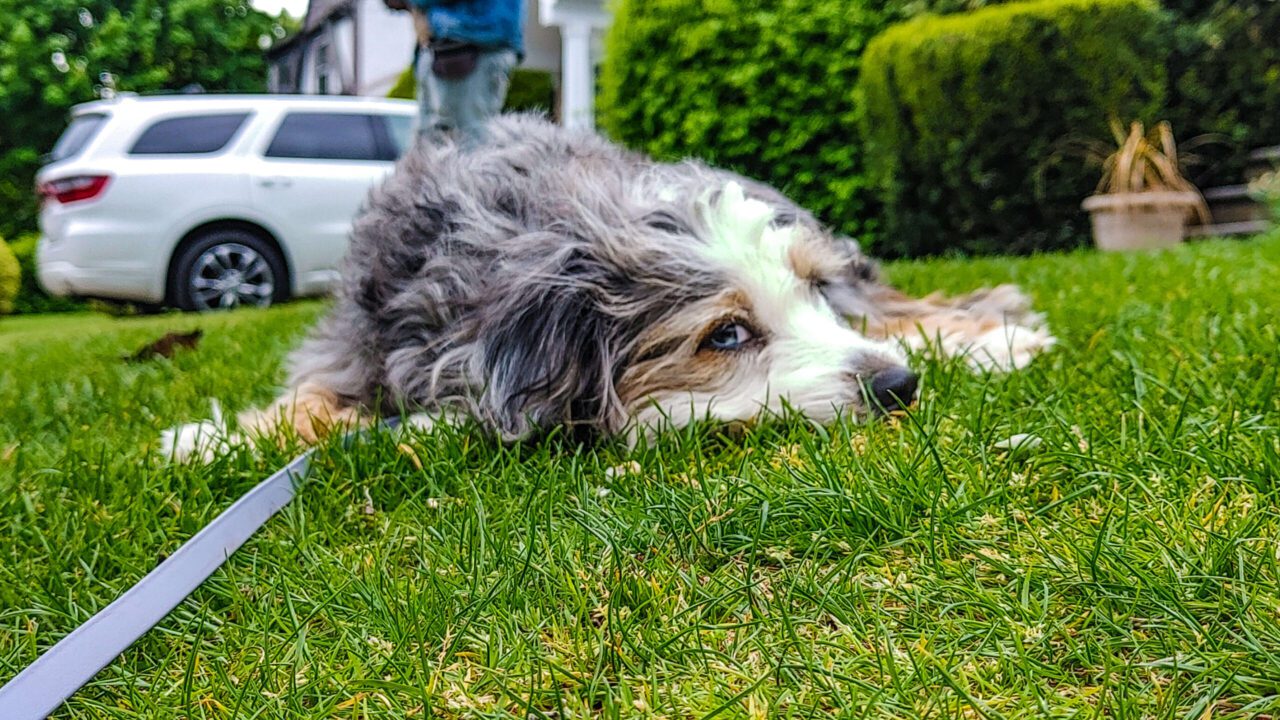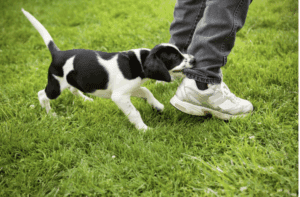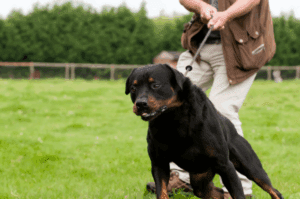Depression in dogs is one of the most overlooked issues that owners need to take seriously. It can severely hamper their development and can often lead to other health issues, both physical and mental. A big part of this is looking out for signs that depression is starting to or has already set in.
It’s worth pointing out that depression in dogs can be addressed and then treated. With professional help, the problem can be solved much faster but owners can help the process along too.
With that said, the owner would need to know that the dog was getting depressed, in the first place before they can be treated. Read on to find out more.
Depression in Dogs
When dogs get depressed, there can be any number of reasons for this. It could be perceived neglect, loss, sickness, or just any number of random events that compounded one after another. Being able to identify the cause is important, but it would be a moot point if the signs are noticed too late.
Depression becomes a serious issue if the dog is sickly or old. The loss of motivation to live could cause health conditions to worsen, thus putting the dog’s life at risk. The same goes for advanced age since studies have shown a correlation between a dog’s desire to live with their lifespans getting extended.
The point is that owners who want their dogs to live longer, healthier, and happier lives will want to prevent or treat depression right away.
Sudden Loss of Interest in Favorite Activities
Dogs will typically have similarities in the things that they enjoy doing. This makes it easy for owners to figure out how to keep their canine companions entertained and happy. Playing, eating, chasing their tails, and so on are common sources of fun.
When the dog stops doing any of those, however, this becomes a sign that something is wrong.
If a particular dog loves a specific toy and plays with it all the time, for example, they might stop enjoying it when the dog is depressed. The toy will lie discarded in a corner and no matter how the owner coaxes the dog to play with it, the toy is just ignored.
The same goes for walks, going to the park, going for a swim, or exploring. If the dog is not showing interest in any of those activities, then they are almost certainly experiencing depression.
Changes in Their Appetite
The old adage “It’s when a dog stops eating that you know something is wrong” is spot on for multiple reasons. The dog could be sick, for example, or there might be a problem with the food. Tooth decay, digestive problems, or even separation anxiety could be contributing factors.
Once you eliminate all the other probable causes, however, you could then come to the conclusion that the dog might be depressed.
There could be varying degrees of severity in the dog’s loss of appetite, as well. The dog might just not be eating as much as before. It could also be not eating at certain times of the day. If the dog doesn’t eat at all and would even ignore treats, then you know that there is cause for concern.
A visit to the vet would then be highly recommended. Calling a professional dog trainer to come over and take a look at the pooch would also be worth doing.
Dog behaviorists and trainers often encounter cases of depression among canines. Helping owners deal with the issue is part of their services.
Constant Sleeping or Lethargy
Dogs like to sleep. A lot. But they don’t do it all the time.
So when a dog spends a majority of the day either sleeping or having almost no energy, this becomes a worrying sign. Again, the dog can be tested for the usual suspects in the form of health issues. Once they are eliminated as potential causes for the lethargy and constant slumber, then we can move on to depression.
It should be noted that this doesn’t apply to those periods where the dog is alone at home. For owners who have cameras to monitor their canine companions while at work, abundant snooze times are not necessarily a cause for alarm.
This will only really be worth noting when the dog is sleeping all the time while there are people at home and the dog barely reacts to anyone’s presence.
Hiding Away
Dogs tend to like small, enclosed spaces from time to time. They feel safe and comfortable when hidden, but only on occasion. Generally speaking, the dog will come out of hiding once the owner calls.
Depressed dogs, however, will crave the comfort of enclosed spaces more than the company of their owners. They are less likely to respond to coaxing, whether using food or toys.
They will also almost always choose spots that are difficult for their owners to find. This is a measure of avoidance, which can be considered an alarming symptom.
Ignoring Playmates
Play is one of the favorite things that dogs like to do. Whether they play with other dogs, other animals, people, or with toys, it doesn’t matter. This applies to dogs of all breeds, ages, and genders, as well.
So, when a dog suddenly starts ignoring playmates, you know that there is a cause for concern. Not least of which is the possibility of the dog feeling abandoned or neglected.
If the dog feels that the owner doesn’t care about it anymore, this can lead to behavior problems that can be difficult to manage. It can even lead to aggression or destruction of furniture.
Conclusion
Depression in dogs is a serious matter that must be addressed swiftly. Dogs shouldn’t be allowed to wallow in negative feelings for any length of time. This could lead to all sorts of physical and mental health issues. It can even influence the dog’s behavior in a bad way.






